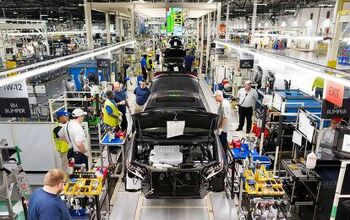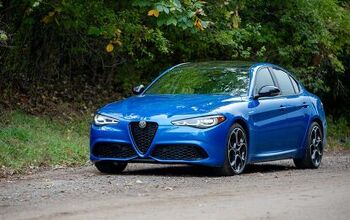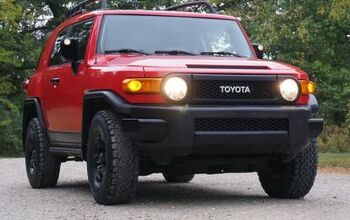Stellantis CEO Says EV Transition Poses Serious Problems

The automotive sector is currently suffering from ongoing component shortages and supply chain bottlenecks stemming from regional restrictions relating to the pandemic. However, it’s assumed that those problems will gradually abate, only to be supplanted by a global deficit of the raw materials necessary for battery production. Analysts have been warning about the shift toward electric vehicles, spurred on by government regulations, for years. But they’re starting to get some company from within the auto industry.
On Tuesday, Stellantis CEO Carlos Tavares suggested that there was a very real possibility that manufacturers could begin confronting serious issues in terms of battery production by 2025 if the shift toward EVs continues at pace. Though his concerns aren’t limited to there being a new chapter in the already too long saga about parts shortages. Tavares is also worried that Western automakers will become overwhelmingly dependent upon Asian battery suppliers which already dominate the global market.
“And if there is no short supply of batteries then there will be a significant dependence of the Western world vis-à-vis Asia. That is something we can easily anticipate,” the CEO said during the Financial Times‘ Future of the Car 2022 conference.
Based on the mad rush to invest in the procurement of the necessary raw materials over the last few years, the rest of the industry couldn’t possibly be unaware of this potential scenario. But some may be better positioned since Fiat Chrysler Automobiles repeatedly snubbed electrification while corporate leadership focused on securing a merger. Now that FCA has combined with PSA Group to become Stellantis, the entity is realigned its priorities to include more of what everyone else is doing.
The company has said it intends on selling sell 5 million all-electric vehicles by 2030 to cater to gasoline bans that are planned for Europe. This comes in tandem with its announcement of battery plants in France, Germany, and Italy to support EV production in the EU. While the industry believes North America will take longer to electrify, Stellantis is planning a battery facility in Ontario, confirmed that Dodge is presently working on electrified muscle cars, and promised that there is at least some level of EV-ification taking place within every other brand it currently owns. Despite this, Tavares seems to believe that government regulators may be steering the industry toward disaster.
“The speed at which now everybody is building manufacturing capacity for batteries is possibly on the edge to be able to support the fast-changing markets in which we are operating,” he said, adding that the emphasis on a swift transition toward EVs could have loads of unforeseen consequences by 2025.
In addition to making Western markets increasingly beholden to Asian manufacturing, Tavares also questioned the ecological benefits of rushing headlong into battery-driven vehicles. Mining operations are not the same in all countries and often come bundled with the risk of using child labor, slave labor, and/or less-than-stringent environmental considerations. Sadly, the bar for what’s deemed acceptable will only be lowered as demand for electrified products increases.
“That means a lot of raw material extraction, that means eventually scarcity of raw materials, that means eventually geopolitical risks,” the CEO said. “We may not like the way those raw materials are going to be sourced in a few years.”
These are issues your author has been similarly vexed about since 2015. But Tavares eventually strayed from the usual talking points of electrification skeptics to examine how this might negatively impact the industry’s finances. By focusing so heavily on advancing new technologies in an effort to surge battery-electric vehicles on the global market, Stellantis’ leadership is worried the industry is putting itself out on a limb that could snap.
Tavares painted a picture where supply chains haven’t fully recovered and the automotive sector now has to cope with limited battery production in Asia. While 2025 was originally supposed to be the year EVs reached financial parity with combustion cars, the suggested scenario would guarantee the former remained substantially more expensive. But vehicle prices would remain high across the board, making it difficult for any company to operate normally in the years to come — regardless of whether they were selling electric or gas-powered products.
Stellantis’ top dog likewise voiced concerns about what would happen to the countless engineers specializing in internal combustion engines if every automaker swaps exclusively to electric cars. Your author would argue this problem extends to independent repair shops and parts retailers, though Tavares focused mainly on those working directly for automakers during his speech.
“We see that some companies would like to go on Old Co., New Co. kind of break down. Our position is quite different from that,” he explained. “For the people who have been creating wealth and value over the last fifty years, for the communities in which we operate, for our own company, it is not ethical to wake up in the morning and discover that you are on the wrong side of the line.”
“It’s important to tell them that we want to bring them along with us because we believe in their learning capabilities,” the CEO continued. “The most important thing is to tell them that we love them. We want to bring them along with us.”
That little bit of backpedaling was fairly common among the conference’s speakers. Numerous CEOs, including Volkswagen AG’s Herbert Diess, made statements about how the existing regulatory targets were untenable — only to double down on their companies’ growing commitment toward battery electric vehicles still being the correct choice. At this point, they almost have to. Collectively, the automotive sector spent an estimated $230 billion on capital expenditures, research, and development pertaining to EVs in 2020. Another $550 billion has been plotted between now and 2030. Automakers have also been planning to introduce new revenue streams that rely heavily on electrification and vehicle connectivity. The ramifications of failing with EVs now would be nothing short of catastrophic — and may explain why top-ranking executives have started hinting that it might be wise to slow things down before it’s too late.
Despite gaining an early lead on electrification due to Dieselgate, Volkswagen Group had trouble building truly competitive EVs until somewhat recently. Major shifts in production also resulted in work stoppages stemming from widespread component shortages (which curiously didn’t seem to impact Tesla all that seriously) and problems with quality control. But that’s not what the business feels is its greatest obstacle. Diess stressed that the number of charging stations planned for Europe probably wouldn’t be sufficient to support 100-percent EV sales by 2030. Tavares seemed to be in agreement, noting that it was just one problem of many attached to the overarching electrification scheme.
“What’s next? Where is the clean energy? Where is the charging infrastructure? Where are the raw materials? Where are the geopolitical risks of sourcing those raw materials? Who is looking at the full picture of this transformation?” he asked the audience.
[Image: Frederic Legrand – COMEO/Shutterstock]

A staunch consumer advocate tracking industry trends and regulation. Before joining TTAC, Matt spent a decade working for marketing and research firms based in NYC. Clients included several of the world’s largest automakers, global tire brands, and aftermarket part suppliers. Dissatisfied with the corporate world and resentful of having to wear suits everyday, he pivoted to writing about cars. Since then, that man has become an ardent supporter of the right-to-repair movement, been interviewed on the auto industry by national radio broadcasts, driven more rental cars than anyone ever should, participated in amateur rallying events, and received the requisite minimum training as sanctioned by the SCCA. Handy with a wrench, Matt grew up surrounded by Detroit auto workers and managed to get a pizza delivery job before he was legally eligible. He later found himself driving box trucks through Manhattan, guaranteeing future sympathy for actual truckers. He continues to conduct research pertaining to the automotive sector as an independent contractor and has since moved back to his native Michigan, closer to where the cars are born. A contrarian, Matt claims to prefer understeer — stating that front and all-wheel drive vehicles cater best to his driving style.
More by Matt Posky
Latest Car Reviews
Read moreLatest Product Reviews
Read moreRecent Comments
- Cprescott I have watched a series of teardown videos by Munro and Associates (sycophants to Tesla) and cannot believe the hoodwinking that was done with this POS. There was no way it was ever going to sell the golf cart with a bed for the price they said. I cannot believe all of the space those motors take up - so huge and expensive. And the battery pack is the size of Rhode Island!
- Rick T. That's the way the (Milano) cookie crumbles.
- ChristianWimmer My requirements are simple: I love driving fast (Autobahn) and I want a relatively generous and stable range while using creature comforts. No EV on the market can satisfy this requirement, hence I am not interested in one.
- Cprescott Jeep has become fool's gold - thinking they can move this brand upmarket and charge outrageous prices without regard to keeping track of market conditions.
- Chiefmonkey Did these have the same security/theft problem that other Kias have? lol


































Comments
Join the conversation
I have a strong suspicion that those states looking to ban ICE vehicles are going to be making changes to those plans as the cutoff dates get closer and consumers start paying attention to what's *really* going to happen. The problem is that these lawmakers are treating ICE like incandescent lights. The ramifications of this ban are significantly greater than they fully understand.
It just trading one environmental issue for another,mining lithium has implications. But most of the EV drivers in the USA will just say "they are saving the planet" while shifting the environmental cost to that allows them to say that to a third world country.
South America's 'lithium fields' reveal the dark side of our electric future
https://www.euronews.com/green/2022/02/01/south-america-s-lithium-fields-reveal-the-dark-side-of-our-electric-future